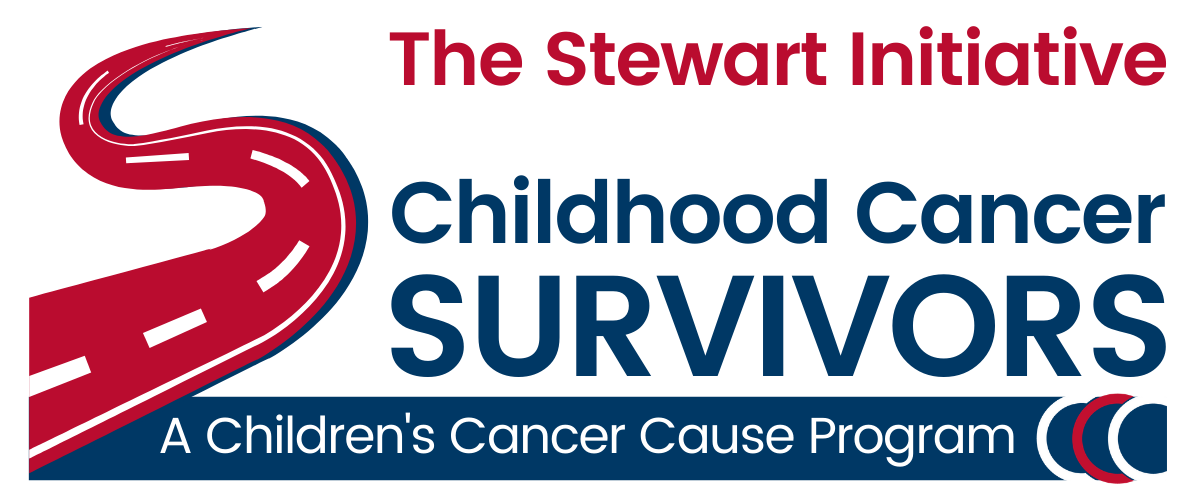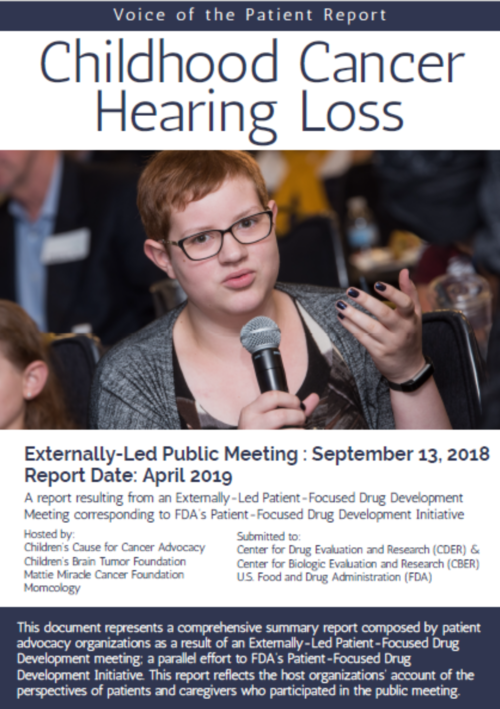The pediatric patient population with chemotherapy-induced hearing loss represents a segment of the cancer survivor community with a severe burden of disease with great unmet medical need.
In late 2018, Children’s Cancer Cause co-hosted an externally-led, FDA-approved Patient Focused Drug Development (PFDD) meeting to explore these issues in-depth. You can also watch the full meeting here, or read through the workshop report here.
About Chemo-Induced Hearing Loss:
Certain cancer medications and therapies, namely platinum-based chemotherapy drugs, cisplatin and carboplatin, and cranial radiation that involves the inner ear, are ototoxic, with the potential to cause damage to the inner ear that results in hearing loss, tinnitus, and balance reduction. In the U.S. approximately 5,000 children receive platinum chemotherapy annually — and 50-60 percent of these children acquire some degree of irreversible hearing loss.
Age at the time of diagnosis and treatment is a significant risk factor for treatment-induced ototoxicity. Children five years of age and under are at a 21-times greater risk for developing hearing loss compared to those treated as adolescents. Hearing loss is a permanent lifetime disability that, in children, has ramifications for speech and language development, learning, social development, employment, and lifetime earnings.
What Survivors with Hearing Loss Need to Know:
Certain educational supports and modifications can help survivors with hearing loss, including seating accommodations, acoustic modifications to the classroom, special education services, tutoring, and classroom note takers.
Survivors with hearing loss require regular hearing evaluations to monitor for progression of hearing loss over time and to ensure their hearing devices are working properly.
It is also very important that individuals avoid future ototoxic medications, if possible, and to be very cautious about exposure to noise using hearing protection whenever exposure can’t be avoided.
“I feel left out and isolated which makes me feel like I’m not part of this world. I’m sad about that. The same drugs that saved my life in some way also took it away. I’m alive, but I don’t feel alive because I feel alone and isolated in this quiet road I live on.” - Pediatric Cancer Survivor
Among the key lessons learned at the 2018 PFDD on Childhood Cancer Hearing Loss:
Survivors with hearing loss report severe social isolation and anxiety as their single most challenging quality-of-life issue, describing difficulties in trying to keep up at school or interact with colleagues at work.
Although patients use a variety of devices, therapies, and adaptation strategies to manage the consequences of hearing loss, the effectiveness is limited and each modality has significant downsides, with 37% of respondents indicating that these interventions did not help at all.
Hearing aids are the most widely-used intervention but can have significant disadvantages, including discomfort, expense, reliance on battery life, and poor performance in noisy environments.
The number one issue that worries caregivers and patients the most about hearing loss is that its severity will worsen, impacting related issues like tinnitus and balance.



